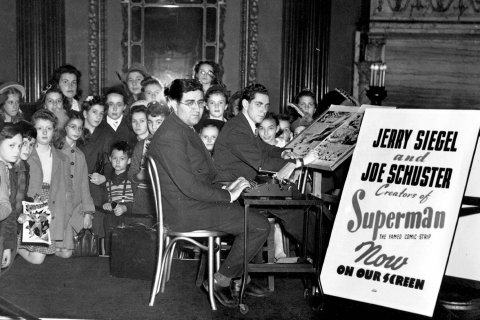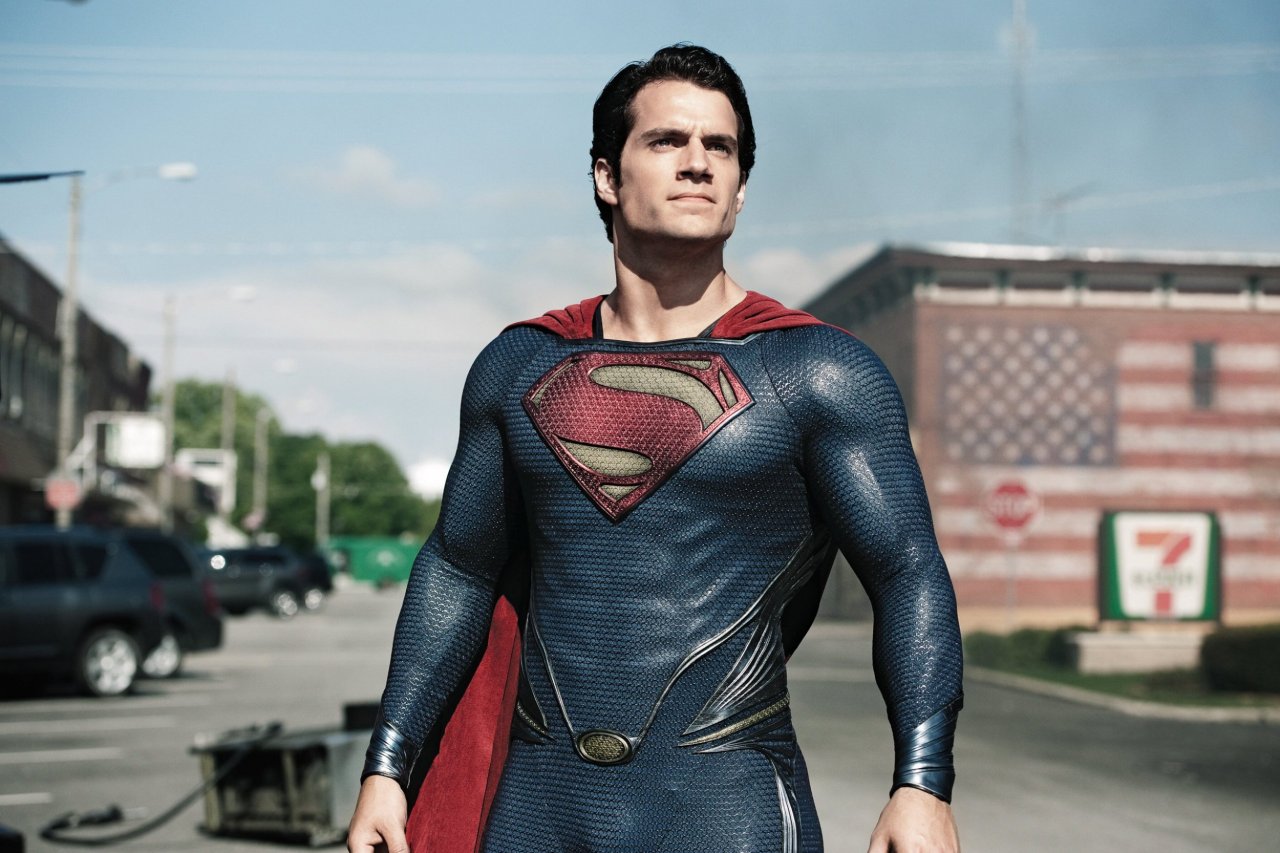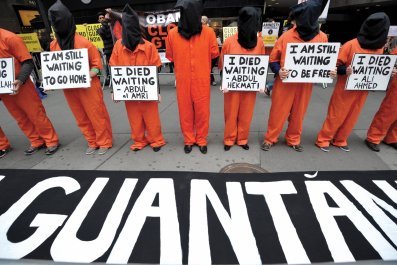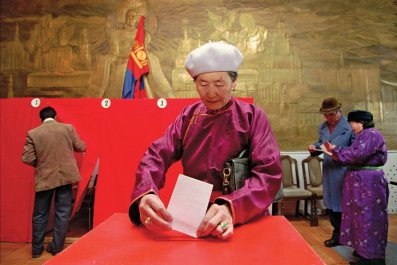Superman's symbol thrives in times of war, and for evidence of this you only have to watch the National Guard's commercial for the new film Man of Steel. "The uniform they wear makes an extraordinary difference," the ad goes, as it celebrates "people who always answer the call for help." Clark Kent's metamorphosis merges effortlessly with citizen soldiers answering the call to defend and rebuild the country. Patriotic propaganda was the norm for the generation that was first introduced to Kal-El—this was how they experienced the Man of Steel and how he became an icon. Superman was created during the Great Depression in 1938, in a time when fear was spreading across the world, on the eve of a war that saw America save Europe from fascism.
There have been some excellent histories of Superman published recently, and all of them aim to tell the story of how Superman became the symbol of American hope. Larry Tye's Superman: The High-Flying History of America's Most Enduring Hero, comes right out and stakes the claim: "He helped give America the backbone to wage war against the Nazis." Superman couldn't win the war for us, since he would vanquish the Axis powers in minutes, but, like God, he provided the moral support. In The Amazing Adventures of Kavalier and Clay, Michael Chabon's Pulitzer Prize–winning novel about a pair of cousins modeled after the actual Superman creators, Jerry Siegel and Joe Shuster, the first comic-book cover that Kavalier draws features his superhero, The Escapist, punching Hitler. It upsets Kavalier when he's told to "lay off the Nazis" because America hasn't declared war on Germany yet, and the "Aryan-American League" is threatening to bomb the office. "I wasn't aware that Nazis read comic books," the owner of the building, who happens to be New York Gov. Alfred E. Smith, tells Kavalier.
A deliciously absurd moment in Super Boys, an ambitious new biography of Siegel and Shuster that aims to be as literary as Kavalier and Clay and takes Chabon's novel as a model, notes that Siegel, who was Jewish, was threatened by the Nazis in Das Schwarze Korps, the official newspaper of the SS. In the April 25, 1940, issue of the paper, the SS lashes out at "Jerry Israel Siegel":
"The inventive Israelite named this pleasant guy with an overdeveloped body and underdeveloped mind 'Superman' ... As you can see, there is nothing the Sadducees won't do for money ... Instead of using the chance to encourage really useful virtues, he sows hate, suspicion, evil, laziness, and criminality in their young hearts. Jerry Siegellack stinks."

Until then, Siegel really wasn't aware that Nazis read Superman. The news was both delightful and unsettling, and it seemed to have given him courage and purpose. Three years later, Siegel enlisted in the U.S. Army. He never fought on the front lines—he became a staff reporter and regular columnist for the military's newspaper Stars and Stripes. Nevertheless, the U.S. won the war without Superman. America had plenty of other heroes.




























